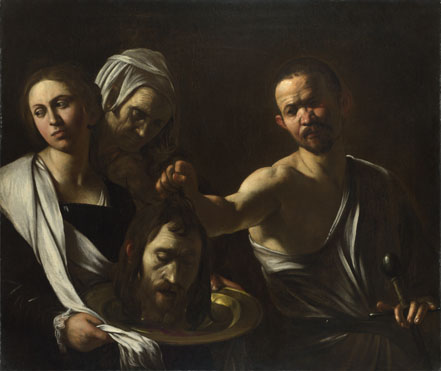* * * *

* * * *
June 21, 2024 – “The Bible was designed to expand your mind.”
That’s the new theme for this blog. Or rather, it’s the new restatement of the theme. And by the way, that restatement can be said to the tune, “If It Doesn’t Fit, You Must Acquit.” (Which will be hilarious for “people of a certain age.”) Another restatement? The idea of “Christian first-graders.” As in, Christians who never go beyond first grade when it comes to reading, studying and interpreting the Bible. Which to me applies to those Literalists and Fundamentalists who both cheat themselves and drive away new recruits in droves – especially the young.
On the contrary, John 4:24 says “God is Spirit, so those who worship him must worship in spirit and in truth.” And 2d Corinthians 3:6 says that in and through Jesus, God “hath made us able ministers of the new testament; not of the letter, but of the spirit: for the letter killeth, but the spirit giveth life.” (That’s from the King James Bible, the one God uses.) And finally there’s Romans 2:29, where Paul distinguished people who conform outwardly but miss the point “in their innards.” Using an allegory from his former life – before the Damascus Road experience changed that life – Paul said, “Rather, a person is a Jew who is one inwardly, and real circumcision is a matter of the heart – it is spiritual and not literal.” (Emphasis added.)
Incidentally, I ran across that Romans 2:29 quote while reading the Daily Office the day I posted this. (Coincidence?) But back to the subject at hand. I’ll be writing more about Christian First Graders in the future, but this post is supposed to be about John the Baptist, who literally had his head handed to him on a plate. (As shown in the painting above.)
Specifically, today is the Feast Day for the Nativity of John the Baptist. It celebrates the birth of the one “who foretold the coming of the Messiah in the person of Jesus, whom he later baptised.” The Bible readings: Isaiah 40:1-11, Psalm 85, Acts 13:14b-26, and Luke 1:57-80. Luke tells of Elizabeth – cousin of Mary (mother of Jesus) – and how her husband got struck dumb.
The time came for Elizabeth to give birth, and she bore a son. Her neighbors and relatives heard that the Lord had shown his great mercy to her, and they rejoiced… [T]hey were going to name him Zechariah after his father. But his mother said, “No; he is to be called John.” They said to her, “None of your relatives has this name.” Then they began motioning to his father to find out what name he wanted to give him. He asked for a writing tablet and wrote, “His name is John…”
The story of Zechariah getting struck dumb starts at Luke 1, verses 5-7. He was a member of the “priestly order of Abijah,” and he and Elizabeth were righteous before God but also old and childless. Then God sent an angel to tell Zechariah he was about to become a father. He got struck dumb because he doubted the message from God. (He should have accepted on faith what was, to him, counterintuitive. “A lesson for all you young kids out there!”)
That is, nine months earlier – as Zechariah was doing his priestly duties in the inner sanctuary – the angel Gabriel appeared and told him Elizabeth would bear a son. But he doubted: “How will I know that this is so? For I am an old man, and my wife is getting on in years.“ And that was why he was struck dumb. As Gabriel told him, “Since you didn’t believe what I said, you will be silent and unable to speak until the child is born.” Luke 1:20.
The result? Zechariah wrote out, “His name is John.” Then came Luke 1:64, saying right after he wrote his son’s name, “Immediately his mouth was opened and his tongue freed, and he began to speak, praising God.” Right after that came the Benedictus, Zechariah’s “song of thanksgiving … on the occasion of the birth of his son.” (And – no doubt – on being able to speak again):
The second part … is an address by Zechariah [to John], who was to take so important a part in the scheme of the Redemption; for he was to be a prophet, and to preach the remission of sins before the coming or the Dawn from on high. The prophecy that he was to “go before the face of the Lord to prepare his ways” [Luke 1:76,] was an allusion to the well-known words of Isaiah 40:3 which John himself afterwards applied to his own mission (John 1:23).
Luke 1:80 then says the child “grew and became strong in spirit; and he lived in the wilderness until he appeared publicly to Israel.” In turn John was a “key figure in the preparation of the Messiah’s work.” Unfortunately, that advance work included a gruesome death by beheading, as told in Mark 6:14–29: “the king sent a soldier of the guard with orders to bring John’s head. He went and beheaded him in the prison, brought his head on a platter, and gave it to [Salome]… When his disciples heard about it, they came and took his body, and laid it in a tomb.”
But we’re getting ahead of ourselves. On this June 24th we celebrate the birth of John the Baptist, who in his lifetime performed an invaluable service as forerunner and advance man for Jesus. May we too perform such “invaluable service,” as for example by bringing more people to Jesus. Especially those put off by Christian First Graders who ignore the message that the “the Bible was designed to expand your mind.” (It was not designed to lord political power over those who dare disagree with us.) Of course all this while keeping in mind that John’s life and especially his gruesome death serve as a reminder that, as one Christian mystic said:
“It is to vigor rather than comfort that you are called.”
* * * *
* * * *
The upper “Salome” image is courtesy of nationalgallery.org.uk/paintings/caravaggio: “The subject is from the New Testament [Mark 6, verses 14-29]. Salome had danced so well for King Herod that he swore he would grant her any request. Her mother, Herodias, who sought revenge on John the Baptist, persuaded Salome to ask for his head. The old woman behind Salome may be Herodias.”
The Book of Common Prayer reference: The “corporate-mystical” prayer is on page 339, the post-communion prayer for Holy Eucharist, Rite I.
“Feast days” are designated days on the liturgical (church) calendar “set aside to commemorate events, saints, or doctrines that are important in the life of the Church. These can range from Solemnities, which are the highest-ranking feast days like Easter and Christmas, to optional memorials that celebrate lesser-known saints.” Feast Days: Celebrating the Church’s Calendar.
For this post I borrowed from On the Nativity of John the Baptist – 2015, John the Baptist, Peter and Paul – 2016, On “John T. Baptist,” Peter and Paul – 2021, and On John “T. Baptist” – 2023 (et alia).
Re: “Innards.” The link points to the term as from the Old English inweard “inmost; sincere; internal, intrinsic; deep.” (Which I didn’t know before doing this.)
The “vigor-comfort” is from Practical Mysticism, with advice for the Christian First Graders:”
Hearing now and again the mysterious piping of the Shepherd, you realize your own perpetual forward movement . . . and so are able to handle life with a surer hand. Do not suppose from this that your new career is to be perpetually supported by agreeable spiritual contacts, or occupy itself in the mild contemplation of the great world through which you move. True, it is said of the Shepherd that he carries the lambs in his bosom; but the sheep are expected to walk, and to put up with the bunts and blunders of the flock. It is to vigor rather than comfort that you are called. (E.A.)
Evelyn Underhill, Ariel Press (1914), at page 177. See also Evelyn Underhill – Wikipedia.
The lower image is courtesy of Salome – Wikipedia. The caption: “‘Salomé,’ by Henri Regnault (1870).” The article added that this Salome (III) was…
…a Jewish princess, the daughter of Herod II, who was the son of Herod the Great, with princess Herodias. She was granddaughter of Herod the Great, and stepdaughter of Herod Antipas. She is known from the New Testament, where she is not named, and from an account by Flavius Josephus. In the New Testament, the stepdaughter of Herod Antipas demands and receives the head of John the Baptist.
* * * *


